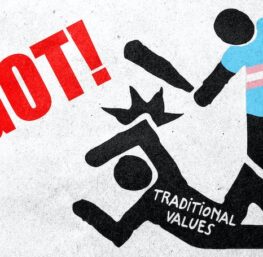American Thinker | Jude Acosta | May. 3, 2008
God bless America. I mean that with all sincerity. We are a nation of hopefuls and always have been. We march on Washington. We cure diseases that have wracked humanity for eons. We break records and run faster-than-four-minute miles. We split atoms and conquer space. We manifest our destinies and defy the presence of gorges, rivers, and mountains that threaten to block our collective will.
In our relatively short time on earth, this nation has spawned more utopian societies and splinter religions promising immediate deliverance than any other culture in history.
We not only hope. We demand. And we do not take “no” for an answer. If we have to move mountains, we move them even if we have to do it one truck load at a time. If we have to wipe out polio, we develop a vaccine. If we have to get across enemy lines, we build stealth aircraft. We believe that nothing can stop us but ourselves.
This, in and of itself, is not a consciousness unique to our time. There have been other warrior nations and empires that have been as bold and clever as we have. The Aztecs, the Mayans, the Romans have all forged paths through impossibly dense forests and forbidding deserts both concretely and metaphorically.
What IS unique to modern America is that our hopefulness comes with a price tag that no other culture has ever been willing to pay. It comes at the expense of reality and the medium of exchange is our spirit.
We want to be happy. We want to be healthy. We want to be wealthy. And, I believe, this “wanting” is only natural. What is not is that we want to be wealthy without having to work all that hard or study all that much. We want to be healthy without having to eat well, sleep through the night or exercise regularly. We want happiness and love and contentment without ever having to suffer or sacrifice. And we want it now.
Of the three “wants”, the third is the most troubling and potentially poses the most subtle danger of our time. The first two (health and wealth) are primarily issues of entitlement which we may address at some other point. The third want-to be happy-is really a deeply ingrained psychic need. We need to be happy at the expense of what we know to be true. We need it so badly that we are forced to deny the obvious inevitability of suffering, rendering it not only meaningless but the mark of a “loser.”
A friend of mine had a conversation with a young man that made this version of “happiness” starkly clear. After the young man praised a mutual acquaintance for buying a high-end television, my friend said to him, “I’d rather have nothing and be loved.”
To which the young man responded, “That’s just loser talk.”
You can see this in New Age theology a great deal, where even sickness, injury, and tragedies are by definition self-inflicted and reveal an error in our core programming. In that philosophy, which has permeated the media and popular thinking, we are responsible for everything that happens to us and around us. Happiness, abundance, good health-all these things are seen as our birthrights. So, if we are suffering, if our loved ones are suffering, well, that just means we’re writing bad scripts for our lives.
In some ways it is a uniquely American way of nipping God in His Achilles’ heel. It says that if there is a God, then it all has to be good, all the time. Evil cannot exist. Because Americans are basically a religious people, for us not to disavow God, we must disavow evil, and by extension, disavow suffering. This is dangerous because in order to do this, in order to deny the value and meaning of suffering, in order to be able to say to someone “If you’re not happy or successful something is wrong with you,” we have to deny the only real hope we ever had: our souls.
[…]
This does not mean we should seek out suffering or, worse yet, ignore it in others. Precisely the opposite. It is only the person who rejects suffering who can walk past the man who is lying on the street in pain. It is only the tyrant who denies his own humanity, his own pain, and his own soul who can deny it in others. It is only the fearful, the misguided, and the selfish who choose their own comfort at the expense of everything else that matters.
This avoidance of suffering has a multitude of personal consequences, predictably and most noticeably the avoidance of intimacy. There is one man I know who has cut himself off from emotional entanglements altogether in an attempt to ward off the pain of loss. I don’t pretend to assume his reasons; they may be many. I know he has experienced the pain of abandonment and witnessed painful deaths. What I can see are the blatant effects of his decision on his life: heavy drinking, isolation, neglect. Even when he is surrounded by those who would love him, he is utterly alone.
The other consequence I have noticed is a tendency to project the suffering outward. People are drawn to reality shows, horror films, and grotesque mutilations on that new genre of TV drama-forensics. I do not fully understand the intrapsychic mechanics of this yet, but it seems to me that we can only deny reality up to a point without either projecting it outward or breaking down. We know that suffering is real. We know that the world is filled with it. But we don’t want to deal with it. So we turn it into melodrama and fantasy. We objectify it, minimize it, and depersonalize it. I have seen the same person watch horror show after horror show, play violent video games, but refuse to help care for an elderly relative with incontinence because it was “gross.”
Unfortunately, in this world what binds us together and what gives us meaning is a complex amalgam of emotions and experiences. It’s not all skipping through the park. People get sick. We get hurt. We make mistakes. We are fallen. And we cannot save ourselves. I am convinced of that. It is always someone else’ hand-God’s, a spiritual adviser’s, a friend’s, a spouse’s, a parent’s-that reaches in to pull us out. This is life.
[…]
To me, joy and happiness are not the same things. Happiness is ephemeral and depends largely on the vagaries of circumstance. It is a transient emotional state that is context-specific and is quickly antidoted by pain or sorrow. Joy is a spiritual state and is therefore, like love, bigger than suffering, than sadness, than pain. Its source is not earth-bound and as such it is independent of the situation in which I may find myself. Joy gives to life. Happiness receives from it. So, I told him and sighed, I can be joyful and still be terribly, awfully sad. I can have hope and simultaneously lament the state of the world. I may suffer. But I love. Deeply. With my eyes and arms and heart wide open. And that kind of love bears me up.
. . . more




The ultimate example of the connection between love and suffering is the Cross. Christianity is the way of the Cross which most of us forget as often as we can conveniently manage. it.
This is one of my main faults…sometimes I have such a fear of getting hurt that I don’t love the way that I should.